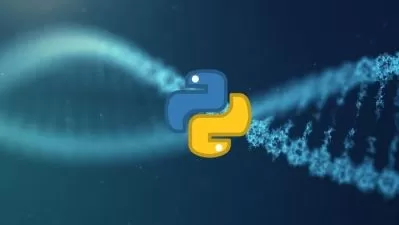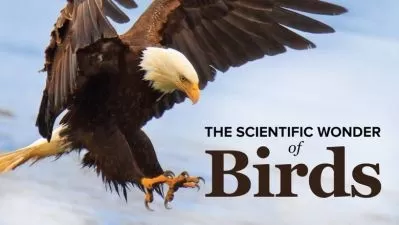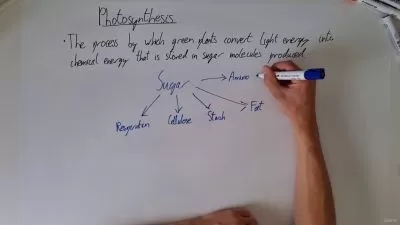Recombinant DNA technology- a game changer in cancer biology
Sumitra Shankar
1:33:50
Description
Anecdotes in cancer biology revealing experimental strategies that revolutionized the field of oncology
What You'll Learn?
- Different theories about cancer namely- chemical, chromosomal and viral, formed pieces of a puzzle that led to the birth of Oncogenes and Tumor suppressors
- Explore how tumor viruses revealed a bigger picture of cancer and also how identification of some of the viruses contributed to rDNA technology
- How cloning strategies accelerated the understanding of molecular dimension of carcinogenesis
- Learn about the non-viral mechanism of tumorigenesis and the different mechanism of mutations occurring in cancer cells
Who is this for?
What You Need to Know?
More details
DescriptionThis course on cancer biology focuses on historical theories and cloning strategies put forth to comprehend carcinogenesis.
The objective is to travel back in time to the period when all the pieces of puzzle such as chemical carcinogens, retroviruses and chromosomal mutations came together to reveal the grand scheme of cancer and propose the underlying criteria for cancer development.
The highlights of this lecture series are the experimental methods developed during 1960s to 1990s which built the foundation for the current model of cancer which stems from two concepts namely- oncogenes and tumor suppressor genes.
You'll learn about Ames test, pro-viral theory, the discovery of reverse transcriptase, Leukemogenesis theory, different mechanisms of tumor cell mutations occurring in the cells, knudson hypothesis and much more.
You'll learn-
Chemical theory section explains the formation of cancer. Somatic mutation hypothesis and Ames test are concepts covered under chemical theory
Chromosomal theory section covers the experiments done to show that chromosomal aberrations cause cancer.
Viral theory section deals with Rous sarcoma virus, pro-viral theory, the discovery of reverse transcriptase, Leukemogenesis theory.
The experiments that indicated the presence of proto-oncogenes and different mechanisms of mutations occurring in cancer cells.
If oncogenes are like accelerators in the car, then tumor suppressors are like brakes. Learn about the cell fusion experiment, Knudson hypothesis and loss of heterozygosity.
How p53 (the guardian of the genome) and pRb tumor suppressors were discovered.
As is with any course, this course is also backed by Udemy's 30 day money back guarantee.
If you're not happy for any reason you will get a full refund.
So take this course today, and get deeper insights in cancer biology.
Who this course is for:
- High school students, college freshers and research students who are inquisitive enough to dig deeper into the powerful observations, brilliant experimental strategies and different theories about cancer that shaped the field of cancer biology we know today
- This course is not for absolute beginners who are looking for a typical in-depth college curriculum and not for experts in the field who are looking for advanced knowledge.
- This course would aid research students in tapping into the collective historical wisdom of the pioneers and use them as a guide in further advancing this field.
This course on cancer biology focuses on historical theories and cloning strategies put forth to comprehend carcinogenesis.
The objective is to travel back in time to the period when all the pieces of puzzle such as chemical carcinogens, retroviruses and chromosomal mutations came together to reveal the grand scheme of cancer and propose the underlying criteria for cancer development.
The highlights of this lecture series are the experimental methods developed during 1960s to 1990s which built the foundation for the current model of cancer which stems from two concepts namely- oncogenes and tumor suppressor genes.
You'll learn about Ames test, pro-viral theory, the discovery of reverse transcriptase, Leukemogenesis theory, different mechanisms of tumor cell mutations occurring in the cells, knudson hypothesis and much more.
You'll learn-
Chemical theory section explains the formation of cancer. Somatic mutation hypothesis and Ames test are concepts covered under chemical theory
Chromosomal theory section covers the experiments done to show that chromosomal aberrations cause cancer.
Viral theory section deals with Rous sarcoma virus, pro-viral theory, the discovery of reverse transcriptase, Leukemogenesis theory.
The experiments that indicated the presence of proto-oncogenes and different mechanisms of mutations occurring in cancer cells.
If oncogenes are like accelerators in the car, then tumor suppressors are like brakes. Learn about the cell fusion experiment, Knudson hypothesis and loss of heterozygosity.
How p53 (the guardian of the genome) and pRb tumor suppressors were discovered.
As is with any course, this course is also backed by Udemy's 30 day money back guarantee.
If you're not happy for any reason you will get a full refund.
So take this course today, and get deeper insights in cancer biology.
Who this course is for:
- High school students, college freshers and research students who are inquisitive enough to dig deeper into the powerful observations, brilliant experimental strategies and different theories about cancer that shaped the field of cancer biology we know today
- This course is not for absolute beginners who are looking for a typical in-depth college curriculum and not for experts in the field who are looking for advanced knowledge.
- This course would aid research students in tapping into the collective historical wisdom of the pioneers and use them as a guide in further advancing this field.
User Reviews
Rating
Sumitra Shankar
Instructor's Courses
Udemy
View courses Udemy- language english
- Training sessions 21
- duration 1:33:50
- English subtitles has
- Release Date 2024/05/08










